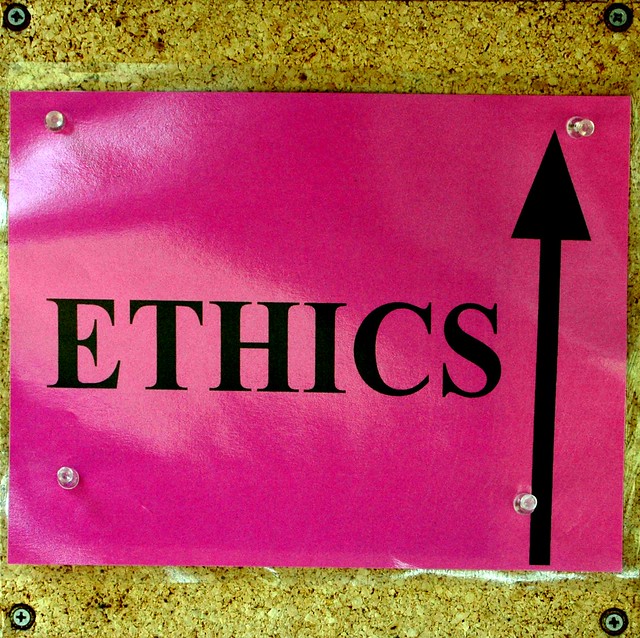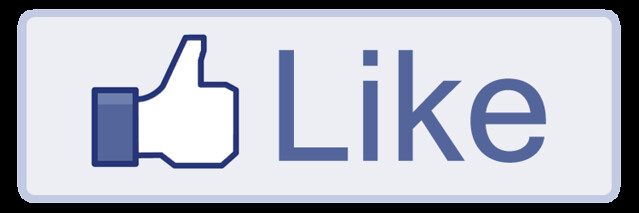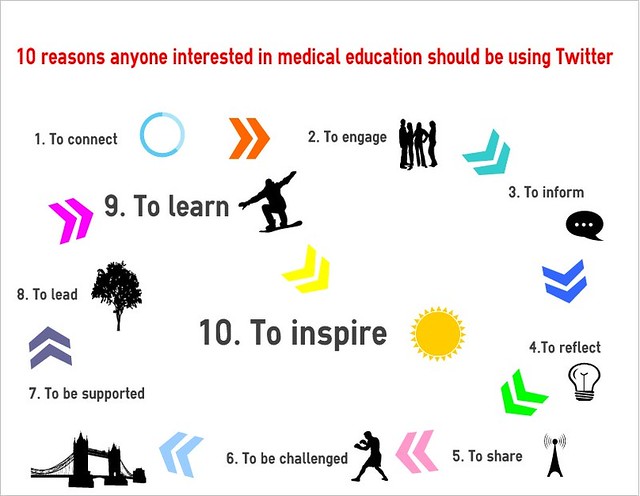Monday, October 22, 2012
Wednesday, October 17, 2012
Monday, October 8, 2012
Ethical responsibilities of leaders of tweetchats?

That way by justinbaeder
Over a year a go, Natalie Lafferty and I hosted the first #meded chat on Twitter. Ours was between 9-10pm UK time, and 5 hours later a similar chat was held for participants in the US.
We had some really great and very wide-ranging discussions. In the UK we had a lot of participation from students and doctors in training. This made for particularly rich and informative debates, for example on portfolios and competency. Over the summer we wound the chats down and didn't get them started again, although the US chat has kept running. But thanks to some calls on Twitter we have got some momentum building again and it looks as if our first session will be announced soon.
In advance of this I wanted to clarify what someone who participates in these chats could expect. I am not so interested in etiquette. We didn't really have any problems before, and participants seemed to be relatively sophisticated users of Twitter, so saying 'be nice' would seem to be a bit superfluous, and a little prissy.
But there are some other issues that I think we should address. The first is the issue of archiving. Anyone can archive anything on Twitter, but I think we should be clear with users that we ourselves will be archiving tweets and the implications of that. Up to now we had been using Symplur's archiving tool but we need to check whether individual tweets can be removed if they breached the confidentiality of patients or others. Again this did not arise before, but it is a serious enough governance issue that I think we should draw attention to it.
Next is the issue of research. As we are forming a community with the participants we would not consider researching the community without making participants aware. However, others outside our community might make us an object of research without making us aware. We can not do anything to stop that but we can make participants aware at least.
So given all that, here is a first draft. It is a fully editable document so please leave a comment here or directly on the document. What else do you think we need to add?
Tuesday, September 4, 2012
For students, can any social platform compete with Facebook?

Facebook like button by Sean McEntee
At #amee2012 last week Facebook was talked about a lot. It came up in the excellent social media workshop that was lead by students and in several posters and short communications. Search this 500+ page book of abstracts to see how often!
But as might be expected there was not agreement on whether Facebook should have any place in medical education. Whilst there were reports of it being used to support student learning in informal and formal ways Imperial College, London, other students and faculty argued that Facebook is a social space and not a learning space. In the past any mention of Facebook at a medical education conference usually concerned being unprofessional, so the fact that people were starting to consider the possibility that it might be educational platform was very interesting in itself.
It was also suggested (including by me) that we might have responsibility to provide safe spaces for students and faculty to model and develop digital professionalism. Quite a few of the issues I heard discussed were raised in the comments of two blog posts I had written last April.
This post is also a follw-up to a discussion on our LinkedIn group 6 months ago. It was started by Bernadette John asking if any medical schools were looking into developing and supporting social platforms for students. King's had just started a project with Elgg but was also thinking about Mahara. Why would a medical school want to do this? Some suggested that the VLE should support social learning interactions. But they don't. Blackboard does not feel social, certainly not social like Facebook.
Today a colleague told me that the University of Wales, Newport (who don't have a medical school) had started using NING , a 'social community tool', in 2008 to support first year students. How might we use something like NING in a medical school? What value would it have? My thoughts are that it would be useful to have a space where students and staff could get to know each other in a semi-formal way. Most of the NHS staff who our students meet do not have profiles on the university site, but it might be useful for students to know some more about what their special interests are clinically, and in research. And vice versa, it would be excellent if teachers could know more about the students they meet on placements.
But later I found out that Newport had stopped using the NING. It was only used by students in the first few weeks of the course to make contacts with each other before they migrated to their own Facebook groups. And if you can't beat 'em, join 'em!! This year Newport is setting up a Facebook page for students to like and post to throughout their university careers.I imagine that even if activity does tail off over the next few months this might still be quite a good channel for the university to communicate with students through.
So can any social platform compete with Facebook? Is there any merit in trying to encourage students to use another 'social learning' platform? A separate platform would mean that students are at less risk of being accused of digital unprofessionalism because they minimise their contact with faculty there *although I would rather see a re-calibration of what is considered unprofessional in the first place- if my ears did not deceive me I think I even heard a medical student volunteer that they were urged not to like a One Direction page on Facebook for fear that it may be seen as unprofessional*.
A separate platform would also mean that faculty with Facebook antibodies could avoid it. Other faculty might be just as concerned as students about mixing personal and professional presences online. There was some talk of dual profiles at AMEE but that is against Facebook terms and conditions. Facebook would rather see professionals create 'pages' to project their work-relate personae.
So some questions. Would students or staff see value in a social platform? For more ideas on how that might work see this post on location and learning. If yes, could that platform ever be Facebook?
(Edit: Here's an interesting post by Donald Clark in January, "7 reasons why Facebook is front runner in social media learning"
Thursday, August 30, 2012
You have a Twitter account... now what?
So you have a Twitter account. Great! But what's next? Maybe you've had this account for months or years and you haven't figured out what to do with it. Here are a few quick tips to enhance your experience!
How I decide who to follow? I look at their recent tweets and if they are saying interesting things or sharing interesting content then I follow them. And then I will often share what I see them saying. The simplest way to do that is to click on the 'retweet' button which then rebroadcasts that tweet so that people who are following you will see it. There are other ways to retweet. You can copy and paste what the other person has said into a tweet. But it is expected that you will try to attribute thoughts and ideas to those who they came from so it is customary to see 'RT' for retweet added to the tweet. There are a few other variations of this... MT for modified tweet, if you change what the first person has said by deleting part for example. And HT for 'had tip' or 'heard through'. It's a way of thanking someone else for bringing you some information. Don't worry if that is confusing. You can just use the RT button and everything will be taken care off.
Should you tweet about matters that are not about your work or study? That's up to you. My personal choice is to share only very limited information about my personal life. I like to have my privacy. But sometimes I will mention the music I am listening to, or a holiday snap. I have no hard and fast rules about this. But I do have a very clear rule that I never tweet about my clinical work. I don't even say if I am working in the practice on a given day. This works well for me.
If you have any questions or tips for others, please post them in the comments. I've written this quickly so I might not have been clear and I might have left some important topics out.
Remember it is fun. If it's not then step away from the computer (or the smart phone!)

1. Update your profile.
Say who you are and why you are using Twitter. If you have a blog or a webpage somewhere that explains more about who you are then link to this. It will help people to know who you are and to have a context for what you say. And add a picture. It doesn't have to be you, it could be something abstract, but it will give people a sense of who you are.
2. Follow people.
Who? Well, it depends on your interests but if you are interested in medical education then I can recommend a few ways to find people to follow. I have pulled together a list of people who tweet quite a lot about medical education. You can find it here. And with a slightly different flavour you can find another list by Jonny Tomlinson here. Jonny is a GP in London who is passionate about inequalities in health, and helping others to understand their impact on the lives of the patients in his practice. He tweets as @mellojonny and I recommend following him strongly.How I decide who to follow? I look at their recent tweets and if they are saying interesting things or sharing interesting content then I follow them. And then I will often share what I see them saying. The simplest way to do that is to click on the 'retweet' button which then rebroadcasts that tweet so that people who are following you will see it. There are other ways to retweet. You can copy and paste what the other person has said into a tweet. But it is expected that you will try to attribute thoughts and ideas to those who they came from so it is customary to see 'RT' for retweet added to the tweet. There are a few other variations of this... MT for modified tweet, if you change what the first person has said by deleting part for example. And HT for 'had tip' or 'heard through'. It's a way of thanking someone else for bringing you some information. Don't worry if that is confusing. You can just use the RT button and everything will be taken care off.
3. Tweet!
Time to get going! What should you say? Don't think about it too much. Just share what you think will be useful to others. Have you read something interesting to day? What are your thoughts about it? Don't under-estimate how knowing that you think a certain paper is worth having a look at is valuable to others. There is a lot of information out there and your efforts to highlight some of the best bits will be appreciated by others.Should you tweet about matters that are not about your work or study? That's up to you. My personal choice is to share only very limited information about my personal life. I like to have my privacy. But sometimes I will mention the music I am listening to, or a holiday snap. I have no hard and fast rules about this. But I do have a very clear rule that I never tweet about my clinical work. I don't even say if I am working in the practice on a given day. This works well for me.
If you have any questions or tips for others, please post them in the comments. I've written this quickly so I might not have been clear and I might have left some important topics out.
Remember it is fun. If it's not then step away from the computer (or the smart phone!)

Wednesday, July 25, 2012
Clinical Key and #OER
Clinical Key is a new product from Elsevier which will search 700 textbooks and 400 journals for clinical content.
I came across Clinical Key today by a tweet in #tipsfornewdocs
But going forward we would like to make our educational materials open educational resources which with could easily share with others. Would this be possible with Clinical Key?
I asked the Twitter account and got the following response:
In the mean time I had missed a tweet from Brenda directing me to the Presentation Maker Terms and Conditions. These specify that "Authorized users for ClinicalKey have permission to use content from the site in presenations for noncommercial use. You must keep intact all copyright and other proprietary notices"
But producing an OER is a noncommercial use. I would have thought that using Elsevier images in a presentation with their copyright respected would be a great way of advertising what might be a very useful service.
Maybe Clinical Key will rethink this.
I came across Clinical Key today by a tweet in #tipsfornewdocs
#tipsfornewdocs If you're at UCL, @ClinicalKey is being trialled until 28 September bit.ly/QD7q9iI then found a YouTube about the 'Presentation Maker' in Clinical Key which allows images to be imported into Powerpoint with all the copyright information embedded. Sounds good.
— Breda Corish (@BredaCorish) July 25, 2012
But going forward we would like to make our educational materials open educational resources which with could easily share with others. Would this be possible with Clinical Key?
I asked the Twitter account and got the following response:
@amcunningham Sharing within an LMS of subscribing institutions, no problem. The content on @ClinicalKey is copyrighted material, so no OER.
— ClinicalKey (@ClinicalKey) July 25, 2012
In the mean time I had missed a tweet from Brenda directing me to the Presentation Maker Terms and Conditions. These specify that "Authorized users for ClinicalKey have permission to use content from the site in presenations for noncommercial use. You must keep intact all copyright and other proprietary notices"
But producing an OER is a noncommercial use. I would have thought that using Elsevier images in a presentation with their copyright respected would be a great way of advertising what might be a very useful service.
Maybe Clinical Key will rethink this.
Tuesday, July 24, 2012
I'm thinking about Twitter but....
I'm already swamped by email, etc etc - how would I manage Twitter?
Email swamps us because it is hard to discern the messages that we do need to reply to from the junk that we shouldn't have received in the first place. But Twitter is an opt-in service. If you feel swamped by getting a newspaper at the weekend then perhaps this is not for you. You will choose who to follow and how often you want to check if something interesting is waiting there for you to discover, or respond to. But if you don't have time then you can ignore it. No one will be annoyed or upset. If someone really wants to get your attention they probably have other ways of contacting you than by a tweet (the dreaded email!) but you will very likely be surprised by how liberating you find 140 characters. Brevity is your friend!
And if like me you want to explore Twitter for your professional development then you can make some choices. What do you currently do for CPD? Why don't you swap 10% of that time to Twitter and see what return you get on your time investment? (I can make that challenge quite confidently!)
Should I have a personal and a professional account?
I have one account. It makes life easy. I don't feel that I share very much of my personal life but you probably will get a very good sense of what I will be like if you meet me at a conference from my tweets. You won't know how I interact with my family but I don't imagine you are very interested in that. Despite leading quite a public life I like my privacy. I feel that I have reached a happy balance.
Is it a problem that tweets are archived?
This question surprised me a little. If my tweets are professional then it is good that they are archived surely? Often the first thing I do when I attend a conference is check if the tweets are archived and if not then set up an archive. Or I try to curate tweets into stories myself using tools like storify. So archiving is not the enemy, it is our friend. I think the questioner was concerned that I was through my limited personal tweets I was exposing personal data. But this happens every time I use my mobile phone, my Visa card, and with CCTV cameras in the UK, often just walking down the street. We are all trading privacy for convenience to a certain extent. Again I am happy with my current balance?
I hope to do another follow-up post about how to get the most out of Twitter, but in the meantime, what are the questions that people raise when you talk to them about social media?
Subscribe to:
Posts (Atom)
